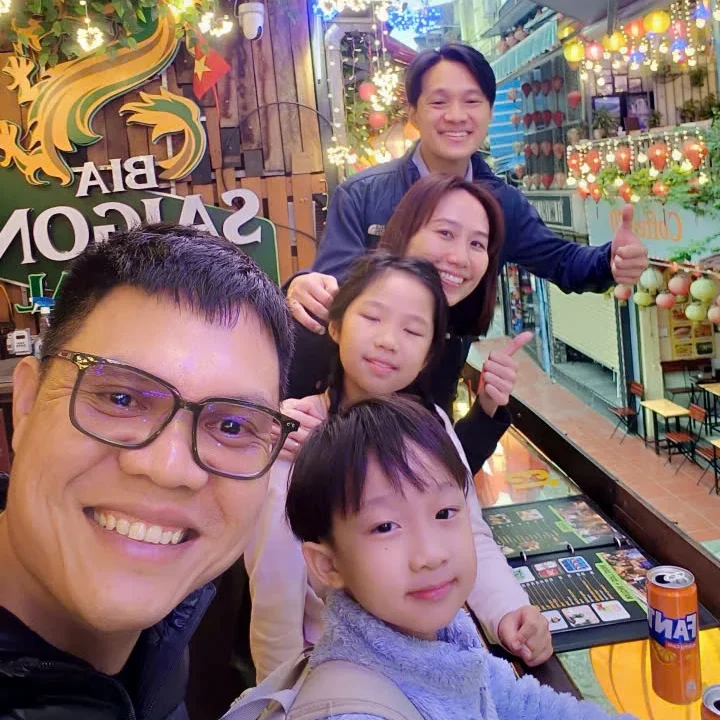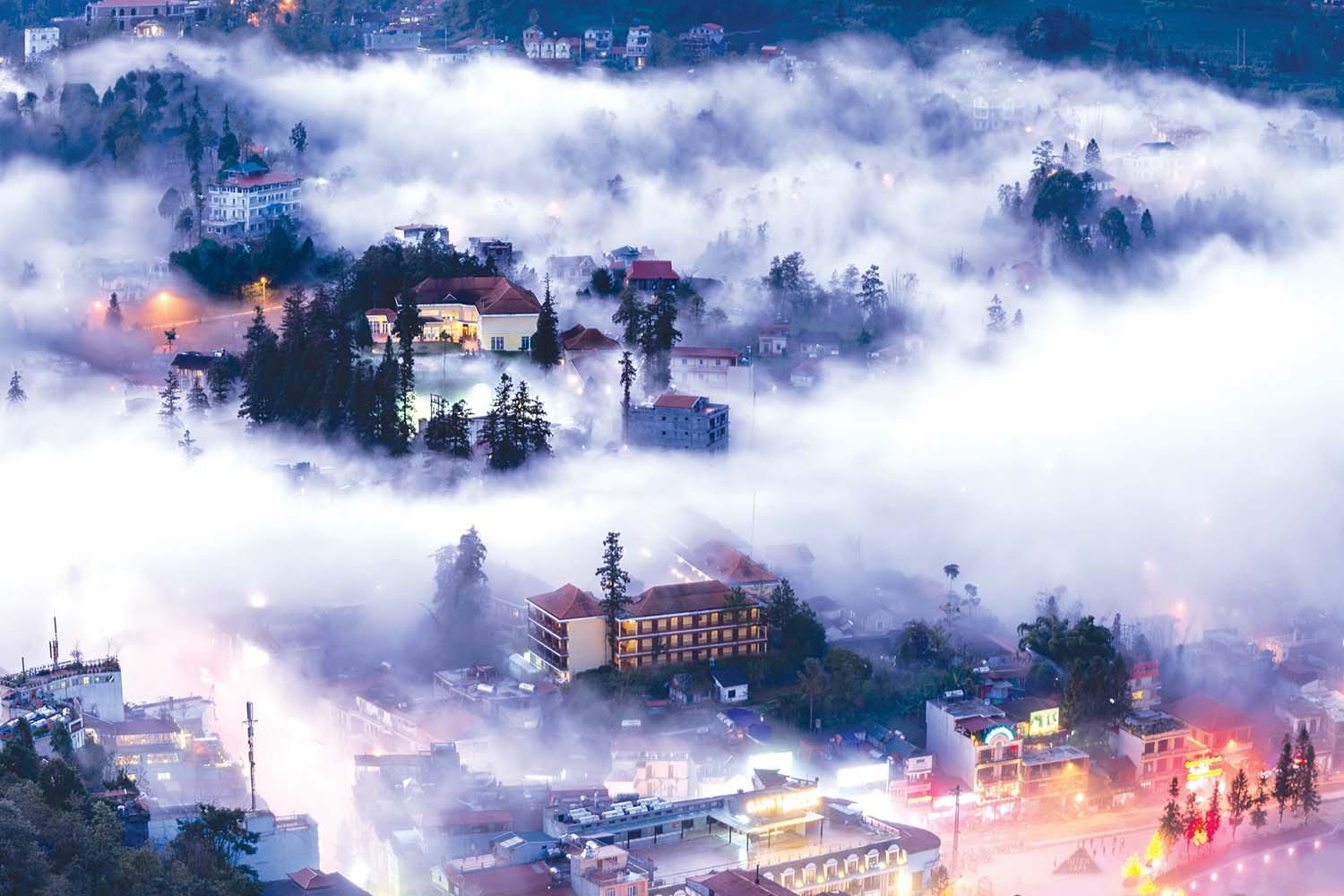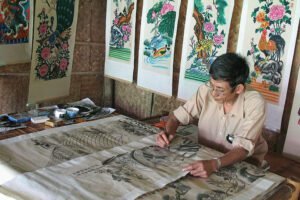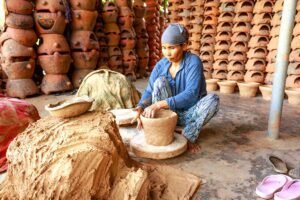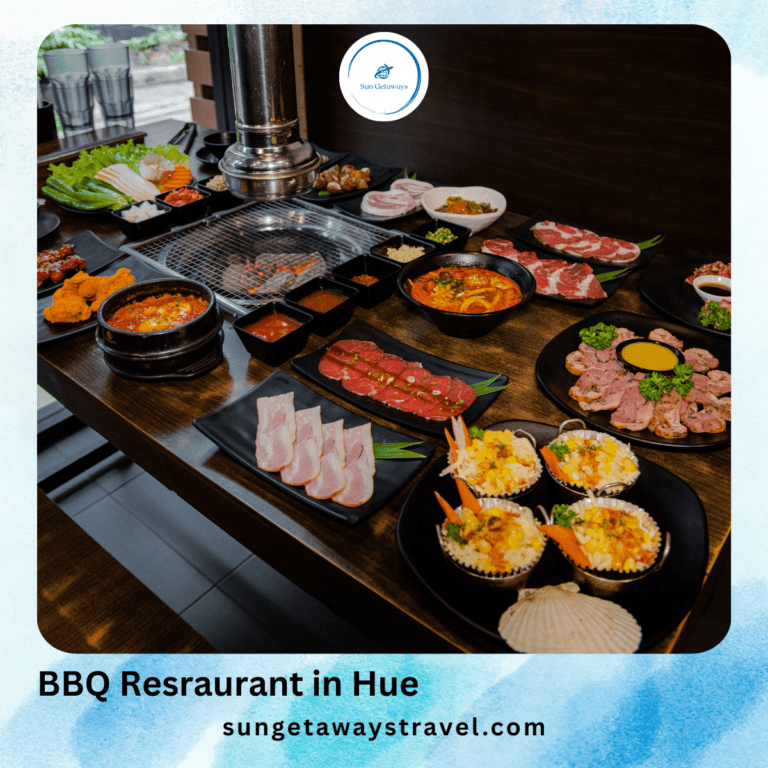Chau Son Monastery: Miniature Europe in Ninh Binh
Tucked away in the serene landscapes of Ninh Binh, Chau Son Monastery stands as a unique blend of Vietnamese peace and European architectural grandeur. Often referred to as the “Miniature Europe,” this monastery captivates visitors with its distinct charm and spiritual atmosphere. Let’s explore Chau Son Monastery with Sun Getaways Travel!

Table of contents
1. Introduction to Chau Son Monastery
1.1. History of Chau Son Monastery


Founded in the early 20th century by French ministers, Chau Son Monastery was constructed to serve as a place for reflection and worship. Moreover, this blend of cultures has made the monastery a significant historical site, representing the melding of Western and Eastern traditions.
1.2. Why is it called a “Monastery”?
Unlike typical churches, the term “monastery” is used because it denotes a place for those following a contemplative lifestyle. The residents, known as monks, live by the principle of “Ora et Labora” (prayer and labor), dedicating their lives to spiritual practice within the monastery.


1.3. Catholic Religion
Catholicism, one of the world’s largest religions, was introduced to Vietnam by European missionaries centuries ago. So this belief, along with its rich traditions and deep spirituality, led to the establishment of various religious structures, including the Chau Son Monastery, built around 100 years ago.


1.4. How to Get There and Best Time to Visit
Reaching Chau Son Monastery is suitable with various transportation options available. Because it is only about 90 km from Hanoi, visitors can travel by bus, car, or motorbike. Additionally, clear signposts and local guidance make the journey hassle-free.






The best time to visit Chau Son Monastery is during the dry season, from November to April. During this period, the weather is pleasant, making it ideal for exploring the monastery and its surroundings. Seasonal highlights such as the blooming of flowers add to the charm of the visit.
💡 You might want to check out: Limousine Ninh Binh: Top 11 Luxury Transportation for Your Travel
2. Exploring Chau Son Monastery
2.1. Architectural Marvel
The monastery’s architecture is a stunning example of European influence in Vietnam. For instance, Gothic arches, intricate carvings, and towering spires evoke the feeling of walking through a medieval European village. Besides, the red-brick façade and meticulously crafted interiors add to its allure, making it a must-visit for architecture lovers.


2.2. European-inspired Red Brick Architecture
The monastery’s construction stands as a testament to the harmonious fusion of European and Vietnamese architectural styles. Most prominently, the striking red bricks, reminiscent of medieval European structures, lend a distinct charm to the monastery’s exterior. This unique blend of architectural influences creates a visually captivating ambiance that sets Chau Son Monastery apart from other religious sites in Vietnam.


2.3. Fatima Prayer Garden: A Tranquil Oasis
Beyond the grandeur of Chau Son Cathedral lies the Fatima Prayer Garden, a sanctuary of serenity amidst the verdant embrace of nature. The garden is a tapestry of lush greenery, adorned with a myriad of plant species, each contributing to the tranquil atmosphere. A serene canal meanders through the garden, its gentle currents reflecting the vibrant hues of the surrounding flora.






A tranquil lotus pond graces the landscape, its mirror-like surface reflecting the serenity of the heavens above. Rolling hills, carpeted with verdant grass, provide a picturesque backdrop, while the melodious symphony of birdsong fills the air. Sunbeams dance playfully through the canopy of leaves, casting dappled patterns upon the verdant expanse, creating an ethereal ambiance that evokes the imagery of an earthly paradise.
💡 You might want to check out: Experience the Beauty of Lotus Season in Ninh Binh
2.4. The Unique Artificial Egg Stone Yard
Just outside the monastery’s entrance lies a unique and thought-provoking creation: the artificial egg stone yard. This intriguing feature comprises an arrangement of stone eggs, each symbolizing one of the 100 legendary eggs laid by Âu Cơ, the mythical matriarch of the Vietnamese people. These symbolic eggs represent the 54 ethnic groups that comprise the rich tapestry of Vietnamese culture, highlighting the nation’s unity and diversity.




💡 You might want to check out: Hoa Lu Ancient Capital: A Historical Discovery
2.5. Giacop Well: A Vestige of the Past
Embedded within the heart of the Fatima Prayer Garden lies a hidden gem: the Giacop Well, also known as the Well of Repentance. To access this ancient well, one must descend through a stone-lined tunnel, its rustic charm transporting visitors back in time. The subterranean chamber reveals a big expanse, its arched ceiling adding an air of charm.


🌙 Contact us via Whatsapp or follow Sun Getaways Travel Fanpage to get the best information for your Ninh Binh tour. Or follow these posts to get the details if you want to:
2.6. Devotional Sculptures: Expressions of Reverence
Scattered throughout the monastery grounds, exquisite sculptures depict devout figures kneeling in prayer before the Virgin Mary of Fatima. These poignant artworks embody the profound reverence and devotion that pilgrims hold towards the Virgin Mary, their expressions of faith adding a touch of spiritual depth to the monastery’s ambiance.




2.7. European-style Stone Pathways
Especially, the pathways that wind their way through the monastery grounds are paved with stones, their timeworn patina exuding an aura of Old World charm. These European-style walkways invite visitors to embark on a contemplative stroll, their footsteps echoing softly against the stone, creating a sense of tranquility and introspection.




2.8 Imposing Arched Vault: An Architectural Masterpiece
The monastery’s interior is graced by an awe-inspiring arched vault, soaring to an impressive height of 21 meters. Moreover, this architectural masterpiece stands as a testament to the monastery’s grandeur, its bigness creating a sense of awe and reverence. The vault’s vast capacity speaks to the monastery’s ability to accommodate a multitude of pilgrims, fostering a sense of community and shared spiritual experience.


2.9. Exquisitely Carved Columns and Murals
Flanking the aisles of the cathedral, a series of intricately carved columns adds a touch of grace and sophistication to the interior.


Especially, these ornate pillars, decorated with elaborate motifs, which are a testament to the craftsmanship and artistry of the monastery’s builders. Interspersed between the columns, a collection of murals showing scenes from the life of Christ and various saints adorn the walls. These sacred artworks add a touch of spiritual depth to the cathedral’s ambiance, further improving its devotional atmosphere.
2.10. Spiritual Significance
Chau Son Monastery is not just an architectural gem but also a vital spiritual center. It serves as a place of worship and reflection for local Catholics and visitors. The serene environment offers a perfect setting for spiritual retreats and ascetic life, promoting a deep sense of peace and reflection.


The monastery’s role in advancing Catholic culture and traditions is evident in its rituals, religious ceremonies, and the deep reverence for the Virgin Mary, particularly seen in the statues defining people praying to Our Lady of Fatima.
3. Some Information and Tips
3.1. Cultural Impact
The monastery has seamlessly integrated with the local culture of Ninh Binh. In fact, it hosts various events and festivals, mixing Christian traditions with Vietnamese customs. This cultural amalgamation highlights the monastery’s role in encouraging religious and cultural harmony.
3.2. Photography Tips








For photography lovers, Chau Son Monastery offers numerous scenic spots. Especially, the early morning light and sunset provide perfect lighting for charging its architectural beauty. So, the suggested gear includes a wide-angle lens to capture the expansive landscapes and detailed features of the monastery.
4. Conclusion
Chau Son Monastery, with its blend of European architecture, spiritual significance, and natural beauty, offers a unique and enriching experience for visitors. Whether you are an architecture lover, a spiritual seeker, or simply a traveler looking for a tranquil retreat, this small Europe in Ninh Binh is a destination worth exploring.
5. FAQs
- What is the best time to visit Chau Son Monastery? The best time to visit is during the dry season, from November to April, when the weather is pleasant for exploring.
- How do I get to Chau Son Monastery? Chau Son Monastery is approximately 90 kilometers from Hanoi and can be reached by bus, car, or motorbike.
- Are there any accommodation options near the monastery? Yes, there are several accommodation options ranging from budget-friendly guesthouses to luxury hotels.
- What should I wear when visiting Chau Son Monastery? Visitors should wear modest clothing that covers the shoulders and knees out of respect for the religious site.
- Can I take photos inside the monastery? Yes, photography is allowed, but visitors are advised to be respectful and avoid using flash in certain areas.
Visitor Experience: Visitors to Chau Son Monastery can enjoy guided tours that offer insights into its rich history and architectural significance. The monastery also offers meditation and retreat programs, allowing visitors to immerse themselves in its tranquil environment and spiritual practices. Unique sights include the intricately carved columns in the church, European-style stone paths, and the grand arched dome inside the monastery, which stands 21 meters high and showcases impressive architectural prowess.
Ask a question
Leave a Comment (0)
No questions yet. Be the first to ask a question!

